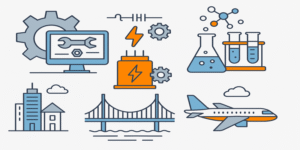Job interviews remain one of the most critical components of the recruitment process, providing employers with the opportunity to evaluate candidates’ competence, personality, and cultural fit. For candidates, they are equally vital opportunities to demonstrate self-awareness, adaptability, communication skills, and resilience (Prince, 2019). While many candidates prepare for predictable questions, the true challenge lies in handling tough interview questions—those that test not only professional knowledge but also emotional intelligence, reflection, and integrity. This article explores strategies for mastering difficult job interview questions by drawing on research on career adaptability, resilience, and communication competence.
1.0 Handling Significant Failure at Work
Questions about failure aim to uncover a candidate’s ability to learn from mistakes and adapt to future challenges. Rather than focusing on the negative outcome, candidates should demonstrate reflective learning and problem-solving resilience (Seibert, Kraimer & Heslin, 2016). For instance, when describing a failed project, one might explain how they implemented new communication strategies or process improvements in subsequent work. This aligns with the concept of career adaptability, which involves transforming setbacks into growth opportunities (Bimrose & Hearne, 2012).
A strong response would use the STAR method—Situation, Task, Action, and Result—to structure the answer clearly. According to Yate (2020), interviewers value candidates who demonstrate accountability and recovery over those who simply blame circumstances or others.
2.0 Responding to Criticism
Employers often use questions about criticism to assess how candidates handle feedback and emotional pressure. Research by Ziegele and Zerfass (2021) on resilience in professional communication suggests that individuals who can process criticism constructively exhibit higher adaptability and emotional regulation. Candidates should, therefore, provide examples where they received constructive feedback, reflected on it, and implemented changes that improved performance.
For instance, a marketing professional might discuss how feedback on presentation clarity led them to enrol in a communication course, resulting in more effective client interactions. This demonstrates a growth mindset and the ability to convert critique into self-development (Doyle, 2024).
3.0 Handling Difficult Colleagues
Conflict management is a test of emotional intelligence, teamwork, and diplomacy. According to Herberg and Torgersen (2021), interpersonal resilience—the ability to manage tension while maintaining collaboration—is essential in team environments. Candidates should focus on their ability to communicate assertively, empathise, and mediate differences without escalating the situation.
A suitable response might detail a disagreement about project direction that was resolved through a collaborative problem-solving approach. This demonstrates maturity and the ability to maintain professional relationships under pressure.
4.0 Making Challenging Decisions
Decision-making questions allow employers to assess judgement, ethical reasoning, and strategic thinking. Seibert et al. (2016) argue that resilient professionals exhibit decisiveness grounded in values and analysis. A strong answer should illustrate how data, stakeholder input, and ethical considerations guided the decision-making process.
For example, a manager deciding between two competing suppliers might highlight their consideration of cost efficiency, product quality, and long-term partnership sustainability. This example shows balanced reasoning and accountability (Glassdoor, 2024).
5.0 Addressing Weaknesses
Discussing weaknesses can be uncomfortable, but it offers an opportunity to show self-awareness and personal growth. Candidates should avoid clichés such as “I’m a perfectionist” and instead choose a genuine area of improvement, explaining the strategies used to overcome it. Research by Baker, Baker and Burrell (2021) supports that acknowledging developmental areas signals psychological resilience and adaptability.
For example, stating “I used to find delegation challenging but have learned to trust my team through clearer communication and feedback loops” portrays leadership maturity and continuous learning (Indeed, 2024).
6.0 Explaining Employment Gaps
Employment gaps can be reframed as periods of personal development or reskilling. As Bimrose and Hearne (2012) note, adaptability involves using transitions productively. Candidates could mention volunteering, education, or caregiving responsibilities that strengthened transferable skills such as organisation and empathy. This reframing shifts the focus from absence to growth, emphasising career resilience (Doyle, 2024).
7.0 Managing Deadlines and Pressure
Interviewers often ask about missed deadlines or stressful workloads to evaluate time management and composure. According to Kossek and Perrigino (2016), professionals with high occupational resilience respond to stress through planning, prioritisation, and reflection. Candidates should acknowledge the challenge, describe corrective measures taken, and highlight the learning outcomes. For instance, using project management software to improve efficiency demonstrates adaptability and initiative (Resumehead, 2024).
8.0 Adapting to Change
Change management is an increasingly sought-after competency. Middleton et al. (2022) identified adaptability as a defining trait of successful employees, particularly in fast-changing industries. Candidates might describe how they adapted to a new technology or organisational structure, focusing on flexibility, curiosity, and proactive learning. Demonstrating comfort with uncertainty communicates readiness for dynamic work environments (Prince, 2019).
9.0 Defining Success
When asked to define success, candidates should align their definition with organisational values and long-term impact. As Yate (2020) suggests, effective candidates connect personal motivation with company objectives. For example, defining success as “delivering measurable improvements that enhance team performance” conveys value-driven professionalism. Employers interpret this as evidence of alignment with the firm’s mission and growth mindset (Glassdoor, 2024).
10.0 Handling Team Resistance
Leadership-related questions about handling resistance are designed to test influence, empathy, and negotiation skills. Herberg and Torgersen (2021) argue that resilience in leadership involves balancing firmness with support. Candidates can provide examples of leading a resistant team through inclusive decision-making and clear communication. This illustrates adaptability and the capacity to maintain morale during change initiatives (Indeed, 2024).
11.0 Demonstrating Continuous Learning
Questions about industry trends test intellectual curiosity and professional engagement. Candidates should mention specific industry publications, courses, or professional networks they follow. This commitment to lifelong learning reflects both career adaptability (Seibert et al., 2016) and professional resilience—key predictors of long-term employability (Ford, 2024). For instance, referencing attendance at webinars or obtaining certifications shows dedication to staying current and improving expertise.
Mastering tough job interview questions requires more than rehearsed answers—it demands authentic reflection, emotional intelligence, and strategic self-presentation. Candidates who approach difficult questions with honesty, structure, and evidence of growth project resilience, adaptability, and confidence. Employers increasingly value such attributes as indicators of future performance and leadership potential (Kossek & Perrigino, 2016). By grounding responses in real experiences and linking them to professional development, candidates can transform challenging moments into compelling narratives of competence and strength.
References
Baker, F.R.L., Baker, K.L. & Burrell, J. (2021) ‘Introducing the skills-based model of personal resilience: Drawing on content and process factors to build resilience in the workplace’, Journal of Occupational and Organisational Psychology, 94(3), pp. 621–645.
Bimrose, J. & Hearne, L. (2012) ‘Resilience and career adaptability: Qualitative studies of adult career counselling’, Journal of Vocational Behavior, 81(3), pp. 338–344.
Doyle, A. (2024) Job Interview Questions, Answers, and Tips to Prepare. The Balance. Available at: https://www.thebalancemoney.com/job-interview-questions-and-answers-2061204 [Accessed 17 June 2024].
Glassdoor (2024) How to Prepare for a Job Interview. Available at: https://www.glassdoor.co.uk/blog/guide/how-to-prepare-for-a-job-interview/ [Accessed 17 June 2024].
Herberg, M. & Torgersen, G.E. (2021) ‘Resilience competence face framework for the unforeseen’, Frontiers in Psychology, 12, pp. 1–15.
Indeed (2024) Why is Body Language Important in an Interview? Available at: https://uk.indeed.com/career-advice/interviewing/why-is-body-language-important-in-an-interview [Accessed 17 June 2024].
Kossek, E.E. & Perrigino, M.B. (2016) ‘Resilience: A review using a grounded integrated occupational approach’, Academy of Management Annals, 10(1), pp. 729–797.
Middleton, R., Kinghorn, G., Patulny, R. & Sheridan, L. (2022) ‘Exploring the attributes of adaptability and resilience amongst recently graduated professionals’, Nurse Education in Practice, 65, pp. 103–118.
Prince, E.S. (2019) 7 Skills for the Future: Adaptability, Critical Thinking, Empathy, Integrity, Optimism, Being Proactive, Resilience. Pearson Education.
Resumehead (2024) Top 100 Job Interview Questions and Answers for 2024. Available at: https://resumehead.com/blog/job-interview-questions-answers [Accessed 17 June 2024].
Seibert, S.E., Kraimer, M.L. & Heslin, P.A. (2016) ‘Developing career resilience and adaptability’, Organizational Dynamics, 45(3), pp. 245–257.
Yate, M.J. (2020) Great Answers to Tough Interview Questions. 11th ed. London: Kogan Page.









